Blogs
How Time Tracking Tools Are Adapting to New Labor Laws & Compliance in 2025
Introduction
The landscape of work is changing fast — not just in how people work, but also in how their work hours are tracked and managed. Governments worldwide are introducing stricter labor laws to protect workers’ rights, ensure fair pay, and promote transparency. In response, time tracking tools like Clock Session are evolving to help companies stay compliant, efficient, and ethical.
This blog explores how these tools are adapting to new labor regulations and reshaping the future of workforce management in 2025.
- The Changing Landscape of Labor Laws
As hybrid and remote work models continue to grow, labor laws are becoming more complex. Governments are enforcing new rules regarding:
- Overtime calculation and pay transparency
- Rest breaks and maximum working hours
- Employee data privacy and consent
- Accurate digital attendance tracking
Companies can no longer rely on manual or outdated systems to manage compliance. A small error in timekeeping could lead to legal penalties, wage disputes, and reputational harm.
This is where AI-powered time tracking software plays a crucial role — ensuring accuracy, automation, and compliance with evolving standards.
- Automation: The Key to Error-Free Compliance
One of the biggest challenges for HR teams is ensuring accurate timesheets and overtime logs. Manual processes are prone to mistakes, and those mistakes can lead to compliance issues.
Modern tools like Clock Session use automation and AI algorithms to track work hours precisely — even across time zones and flexible schedules. Automated alerts help employers and employees stay informed about:
- Exceeding legal work limits
- Missing or incomplete time entries
- Potential overtime breaches
This not only saves time but also ensures that companies stay compliant without manual effort.
- Real-Time Monitoring and Transparent Reporting
Transparency is a core part of compliance today. Employees want to see how their hours are logged and how overtime is calculated. Time tracking tools now provide:
- Employee dashboards showing logged hours and breaks
- Detailed reports for HR and management
- Audit-ready data exports for legal verification
For instance, Clock Session allows both employees and managers to view real-time work logs, creating mutual trust and transparency. This reduces conflicts and supports a healthier work culture.
- Enhanced Data Privacy and Security
With new labor laws come stricter data protection requirements. Regulations like GDPR (in Europe) and similar frameworks worldwide demand that employee data be handled securely and with consent.
Modern time tracking tools are adapting by:
- Encrypting time and attendance data
- Providing role-based access control
- Offering consent-based tracking features
- Storing data in compliance with regional regulations
Clock Session ensures that data privacy is never compromised — allowing companies to maintain compliance while protecting employees’ personal information.
- Integration with Payroll and HR Systems
Compliance isn’t just about time tracking — it also involves accurate payroll processing. Miscalculations in working hours or overtime can easily result in wage law violations.
By integrating with payroll and HR systems, time tracking tools ensure that:
- Work hours automatically sync with payroll software
- Taxes and benefits comply with local labor rules
- HR teams can generate compliance-ready reports
This seamless ecosystem helps reduce manual errors and ensures smooth, lawful payroll operations.
- AI and Predictive Compliance
AI is revolutionizing compliance by predicting potential risks before they occur. In 2025, time tracking tools are not just reactive — they’re proactive.
For example, Clock Session can:
- Identify patterns of excessive overtime
- Alert managers about potential labor law violations
- Recommend scheduling adjustments to avoid penalties
This predictive compliance feature helps organizations stay ahead of issues, protecting both the business and its employees.
- Supporting Remote and Global Teams
The rise of global teams has made compliance more challenging than ever. Each country has its own set of labor laws, and managing them manually can be overwhelming.
Time tracking tools are now designed to adapt to regional labor laws automatically — from break times to wage structures.
- They adjust rules based on location.
- Provide region-specific compliance reports.
- Ensure fair working conditions across borders.
With tools like Clock Session, managing a global remote workforce has never been easier — or more compliant.
- The Role of Clock Session in Modern Compliance
Clock Session stands out as a next-gen AI-powered time tracking solution built to align with global compliance standards.
Here’s how it supports modern businesses:
✅ Automated time and attendance tracking
✅ Real-time alerts for labor law compliance
✅ Secure and encrypted data handling
✅ Seamless integration with payroll tools
✅ Region-wise customization for global teams
By combining automation, AI, and transparency, Clock Session makes compliance not just simpler — but smarter.
Conclusion
As workplaces evolve, compliance and efficiency must go hand in hand. With labor laws becoming more detailed and globalized, companies need reliable tools that can keep up.
Time tracking software like Clock Session doesn’t just record hours — it ensures fairness, transparency, and compliance every step of the way. In 2025 and beyond, automation will continue to redefine productivity, empowering organizations to work smarter, stay compliant, and build trust with their teams.


